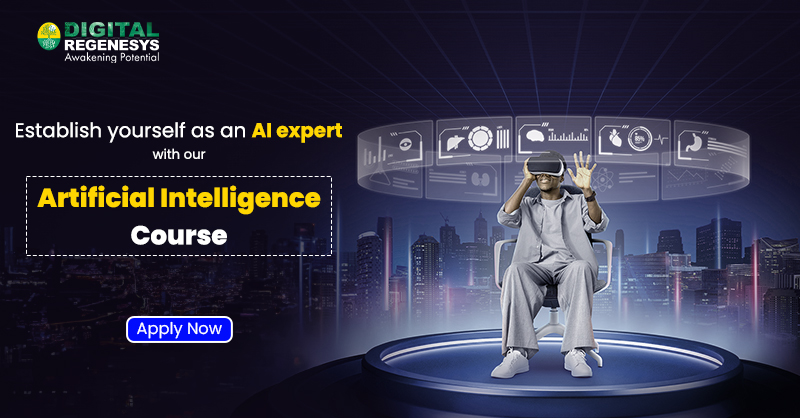11 AI Careers to Consider in 2026

Have you ever wondered who creates self-driving cars, smart chatbots, fraud-detection systems, or tools like ChatGPT? Artificial Intelligence powers these innovations, leading to growing demand for people who can build them.
As more companies automate processes and rely on data, AI careers are among the most exciting and well-paid roles.
AI is transforming industries such as banking, healthcare, retail, telecom, security, and education. Organisations now need professionals who can work with machine learning, data, automation, cloud systems, and intelligent algorithms.
This means there are greater career opportunities in artificial intelligence for learners seeking future-ready, long-term growth.
In this article, you will explore 11 artificial intelligence jobs to consider in 2026, along with the skills required, job expectations, and starting points. You will also learn how to begin your journey and how to grow in artificial intelligence as a career.
By the end, you will have a clear roadmap to start or advance your AI career.
11 Artificial Intelligence Jobs to Consider
AI careers are varied for learners and professionals. These careers offer strong salaries, innovation-driven work, and global demand across every industry.
Whether you enjoy building models, analysing data, or developing ethical frameworks, AI offers a role that matches your strengths. In this section, we’ll look at eleven promising AI roles you can explore for long-term growth.

1. Artificial Intelligence (AI) Engineer
AI engineers design intelligent systems that solve complex problems using algorithms and automation. They work with data, models, and machine learning pipelines.
Key responsibilities include:
- Building and training AI models
- Improving system accuracy and performance
- Working with data and development teams
2. Robotics Engineer
Robotics engineers create smart machines that perform tasks with speed and precision. They use AI to support automation and autonomous movement.
The role often includes:
- Designing and testing robots
- Using AI for movement and decision-making
- Supporting manufacturing and automation projects
3. Software Engineer
Software engineers build applications that use AI features such as automation, prediction, or smart processing.
Regular tasks involve:
- Developing software and AI features
- Testing and debugging systems
- Working with development and data teams
4. Machine Learning Engineer
Machine learning engineers develop systems that learn from data and make predictions. They focus on modelling, training, and deployment.
Core duties include:
- Training machine learning models
- Improving prediction accuracy
- Deploying models into real applications
5. Big Data Engineer
Big Data engineers manage, organise, and optimise large data systems that support AI projects.
Main responsibilities are:
- Building scalable data pipelines
- Managing databases and data flow
- Supporting machine learning teams
6. Computer Vision Engineer
Computer vision engineers build systems that process and understand visual information, such as images and video.
The role includes:
- Building object detection and recognition models
- Improving visual accuracy
- Working with cameras, sensors, and AI tools
Learn more about – Understanding Expert Systems in Artificial Intelligence.
7. Data Scientist
Data scientists turn raw data into insights using algorithms, machine learning, and visualisation. They support decision-making.
Typical tasks include:
- Analysing and modelling data
- Building predictive insights
- Supporting business strategy
8. Natural Language Processing (NLP) Engineer
NLP engineers work on AI systems that read, write, and understand human language.
Responsibilities include:
- Training language models
- Improving chatbot or voice assistant accuracy
- Working with speech or text data
9. AI Research Scientist
AI research scientists explore new techniques and improve AI models through innovation and experimentation.
The role often focuses on:
- Developing new AI methods
- Publishing and testing research
- Working with universities and AI labs
10. Algorithm Developer
Algorithm developers create logic and rules that guide AI systems and automated processes.
Key duties include:
- Designing efficient algorithms
- Improving system results
- Supporting predictive features
11. User Experience (UX) Designer / Developer
AI-focused UX designers create smart user interfaces that adapt to human behaviour and preferences.
The role often involves:
- Designing user journeys for AI systems
- Improving user interaction
- Testing and refining digital experiences
|
Job Role |
Estimated Demand Level* |
|
Artificial Intelligence (AI) Engineer |
Very High |
|
Robotics Engineer |
High |
|
Software Engineer (with AI focus) |
Very High |
|
Machine Learning Engineer |
Very High |
|
Big Data Engineer |
High |
|
Computer Vision Engineer |
High |
|
Data Scientist |
Very High |
|
Natural Language Processing (NLP) Engineer |
High |
|
AI Research Scientist |
Moderate to High |
|
Algorithm Developer |
Moderate |
|
User Experience (UX) Designer/Developer (AI-focused) |
Moderate |
* Demand Level Key
- Very High: Strong growth, many job openings, high priority for employers
- High: Significant growth and demand, but slightly fewer openings compared with “Very High”
- Moderate to High: Growing niche, but more specialised
- Moderate: Niche roles, fewer openings, higher specialised skills required
How to Get a Job in AI?
The artificial intelligence job market is vast. There are many careers in artificial intelligence, and with the right learning plan, you can enter this field even as a beginner. Build your skills, gain hands-on experience, and stay up to date with industry tools and trends.
Here are the steps to begin:
1. Consider earning a degree
To get a job in AI, you need a strong foundation in essential skills, including machine learning, Python, data analysis, neural networks, and AI concepts. Start with beginner-friendly courses and gradually move to advanced topics as you build confidence.
Focus on practical learning, work on real datasets, and understand how AI solves business problems. This helps you stand out when applying for roles. Once you build your core skills, the next step is gaining practical experience.
2. Build practical AI skills
Employers want proof of your abilities, and a portfolio is the best way to showcase your skills. Create AI projects that solve real problems, such as chatbots, predictive models, or automation tools. Share them on GitHub and include short explanations of your approach and results.
A strong project portfolio makes you more credible and increases your chances of getting interview calls. Along with projects, real-world exposure helps you grow faster.
3. Get Real-World Experience
Hands-on experience is valuable for landing your first AI role. You can gain experience through internships, freelance projects, hackathons, or volunteer work. Even small projects for local businesses can help you learn how AI applies in real situations.
Over time, this experience builds confidence and shows employers that you can work on real problems – not just theory. Once you have experience, it’s time to prepare for the hiring process.
4. Prepare for AI Interviews
AI interviews often include technical questions, coding exercises, and problem-solving scenarios. Spend time practising Python, algorithms, AI in machine learning concepts, and model evaluation techniques.
Be ready to explain your projects clearly and discuss how you approached challenges. Solid preparation helps you perform well and show employers that you’re job-ready. Finally, apply for roles consistently and stay active in the AI community.
5. Start Applying and Keep Networking
Finding a role in AI takes persistence. Apply to entry-level jobs, network on LinkedIn, and connect with AI communities, mentors, and alumni. Networking often opens doors that job portals can’t.
Stay updated with industry trends and keep improving your skills as you apply. With consistent effort, you will grow your opportunities and increase your chances of getting hired.
Discover information on – Essential AI Skills for Career Success in 2026.

Companies Currently Hiring AI Positions
Many global and regional companies hire AI talent across industries. South African and international organisations are expanding AI teams to support automation, analytics, and digital innovation.
Top companies hiring include:
- Amazon
- IBM
- Microsoft
- Accenture
- Deloitte
- Capgemini
- Telcos, fintechs, banks, and health-tech startups
Prepare for a Career in AI with Digital Regenesys Today
The Digital Regenesys Artificial Intelligence Certificate Course offers practical training that builds job-ready skills for the future. You learn through real projects and guided lessons that support your progress.
With this course, you get:
- Hands-on learning and practical tools
- Portfolio-building support
- Industry-relevant skills for future AI careers
- Access to a supportive learning community
Speak to our career advisor.
Conclusion
Artificial intelligence is changing how businesses operate. It’s creating real career opportunities for people ready to learn new skills. If you want to build a future in tech, AI is one of the most promising paths you can choose.
Start small, keep learning, and focus on building practical projects that you can showcase to employers.
With consistent practice and the right guidance, you can grow into a confident AI professional. If you want structured learning and industry-focused skills, enrol for our Artificial Intelligence Certificate Course at Digital Regenesys. It’s a great way to gain hands-on experience and prepare for real AI careers.
Your journey in AI doesn’t need to feel overwhelming – take the first step, stay curious, and keep moving forward.
Know more about – The Purpose of Prompt Engineering in GenAI Systems.
Last Updated: 1 November 2025
